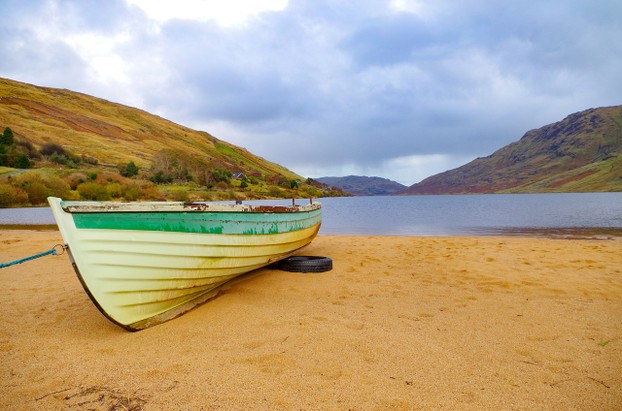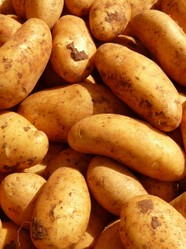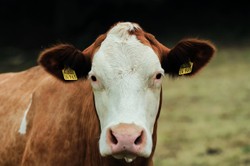By the late eighteenth century agricultural thinkers had realized the importance of crop rotation, the principle of which is that you operate a three or fourfold succession of crops: potatoes, peas and beans, brassicas, onions and leeks, and maybe others in a longer rotation. This technique obviates the possibiity of the build up of plant diseases, which occur if the same crops are grown on land year after year.
But the Irish peasants were unable to rotate crops, for their poverty forced them to grow cash crops for the English market, but the crops were not high quality and the same were grown year after year on the same piece of land. This meant that plant diseases accumulated, and there was a really nasty one, which to make matters worse was completely new to science: Phytophthera infestans, a nasty fungus that ravaged certain varieties of potato. So not only did the Irish meet a problem that they had never previously met, but they were growing a variety of potato that was susceptible to blight, the Lumper. The Lumper was a large, poorly flavoured, cheap variety which appealed to the cheapest end of the market, to people already short of corn and for whom the humble potato was a staple food. Moreover, it was the variety that was grown across the country,so when one person was hit, many were hit by the blight.
Blight is technically known as late blight to distinguish it from early blight, which is less harmful. So the Irish spent much of summer expecting a decent crop and then when funds were low found that the crop had rotted, leaving them financially devastated. Disaster!
The trouble is that blight likes conditions when light is low from dull skies and the air damp with high humidity. Conditions like these prevailed for three years from 1845 to 1848, so not only did one year's crop fail, but three years failed, but the Conservative Government persisted in its defence of the corn laws to defend the landowners' interests until the bitter end in 1846 when conditions became so dire that some of them actually developed a conscience.
At that time no one knew that the condition was caused by a fungus and that there were chemical treatments for the blight, one of which was the later developed Bordeaux mixture, which was based on copper, which is toxic to fungi. This ignorance gave rise to the misconception common among some Irish nationalists that the English had invented the disease to commit genocide against the Irish, which was never true, for they had not the technical or scientific skill to invent the disease.










 Pilgrimage. A review19 days ago
Pilgrimage. A review19 days ago
 Leo the Fourteenthon 05/09/2025
Leo the Fourteenthon 05/09/2025
 The Melsonby Hoardon 03/25/2025
The Melsonby Hoardon 03/25/2025



Comments
It does not seem very popular
I never heard of pease bread
Thank you to Frank and Veronica for the comments below in answer to my previous observation and question.
It intrigues me that neither one of you identifies pease bread as popular today.
What is pease-bread?
I got the phrase seventh bread from my studies of vegetables. I gotnmynIrish from an Open University course and from a friend, carl
Rye bread in our house. And soda bread. All home made.
Gingerbread is a cake over here not a bread.
I do speak a little Irish Gaelic and I do not know where he gets this.
Barley, rye, Wheaton and ginger are still common
Thanks to Veronica for the comment below about the aggravatingly untranslated phrase an litir bheag.
The LearnGaelic site with that phrase suggested, per Ronald Black in The Gaelic Otherworld, silverweed as the seventh bread after the first through sixth oat, barley, rye, pease, wheaten and ginger breads.
Would the above-mentioned breads still be popular and practical in the British Isles today?
Thanks
An litir bheag means literally ...
the letter small
I.e. the small letter
Thank you to Frank and Veronica for the answers below to my previous observation and question.
The search term "seventh bread Gael" brought the entry An Litir Bheag 357 - The siliverweed (3) on the LearnGaelic site.
That site gives Brisgean beannaichte an Earraich, seachdamh aran a’ Ghàidheil as Gaelic for "Blessed silverweed of spring, the seventh bread of the Gael."
A Scots Gaelic etymological dictionary, with entries alphabetized by the Gaelic word but with the English definition after, indicates the same.
What is the reason for making silverweed the "seventh" bread?